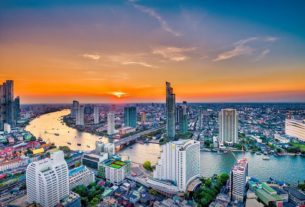The Government is currently undertaking feasibility studies on a high-speed rail connecting Kuala Lumpur and Singapore.
Public Land Transport Commission (SPAD) chief development officer Azmi Abdul Aziz said that the feasibility studies would take about eight weeks to complete.
“We have done some comparisons with other similar high-speed rail links around the world such as the Paris-Brussels link and it is feasible to connect Kuala Lumpur and Singapore, spanning around 400km,” he said.
“The high-speed rail is expected to have a positive impact on the country’s tourism industry, have a time-saving factor and further unlock the property values in Kuala Lumpur.
“But, although it is feasible, we still have a lot of further considerations to look at such as the impact on other parallel transportation as well as the demand and supply.
“Besides the Kuala Lumpur-Singapore link, SPAD is also looking at other high-speed rail proposals involving Kuala Lumpur-Penang-Bangkok,” Azmi said in his presentation at the Greater KL: smart city of the future conference yesterday. The conference was organised by Asian Strategy and Leadership Institute and IBM.
Federal Territories and Urban Well Being Minister Senator Datuk Raja Nong Chik Raja Zainal Abidin said the second of four dimensions that governed Greater KL or the Klang Valley aspirations was to improve intra and inter-city links.
“Regional connectivity will be accelerated by deploying a high-speed train system to connect Greater KL and Singapore.
“At the same time, intra-city connectivity will be improved by the mass rapid transit (MRT) system,” he said in his closing keynote address at the conference.
SPAD is currently busy as the supervising agency for the roll out of the country’s first MRT system, the construction of which is expected to start in July.
The MRT was a subject of debate at the conference, touching on issues pertaining to station location as well as its integration with other modes of transport.
Mag Technical and Development Consultants Sdn Bhd director Goh Bok Yen, in commenting on the announcement of the first MRT line, said the public must be given the overall picture of the MRT (which is proposed to have three lines) to receive valuable feedback.
“The public needs to know the overall picture of integration which involves the physical, operational, ticketing and information aspects. These are vital to convince the public of the viability of the MRT project.
“But, I’m sure that SPAD has its reasons for announcing the development of the initial line only as of now,” he said in his presentation at the conference.
On other concerns over the MRT project, Goh raised the question of the size of the four-car MRT train.
“The four-car MRT train is expected to carry more than the four-car light rail transit (LRT) system train. Thus, the size of the MRT train may be bigger in diameter.
“A fatter train will need bigger tunnels, which will cost more, or should we have a longer train that will need smaller tunnels?” he asked.
Goh also questioned the need to have the announced Sungai Buloh-Kajang MRT line paralled to the main road and highways.
Nevertheless, he did not dispute the need for a good urban rail transport that should be the backbone of urban public transport.
“But, one has to be aware that MRT is only one of six modes of transport in Kuala Lumpur.
“MRT is unable to be sustainable by itself where it is supported by feeder services. This is because MRT is inflexible. We need other modes of transport to get us to our final destinations.
“Thus, it is vital to have a balanced approach to the master plan of urban public transport where it should be sustainable, flexible in capacity and capability, and expandable,” Goh said.
Source: http://biz.thestar.com.my/news/story.asp?file=/2011/3/8/business/8208623&sec=business
